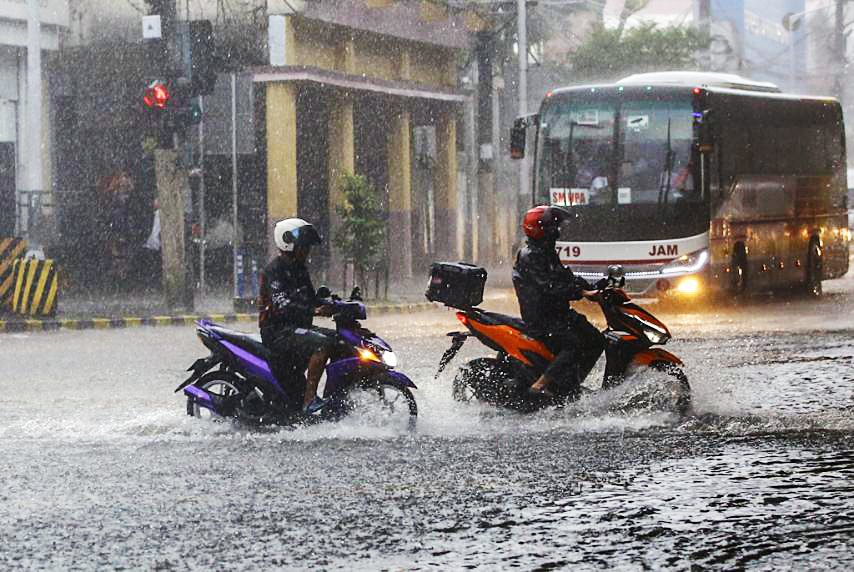
By Brian Campued
With the continued intensification of Typhoon Nando over the Philippine Sea, residents living in low-lying and coastal areas are advised to prepare for the imminent calamity and follow directives by authorities to ensure their safety.
In line with this, the Department of the Interior and Local Government (DILG) on Saturday issued an advisory to all concerned local officials and regional directors to implement preemptive evacuation in areas highly susceptible to flooding, landslides, and storm surges.
Venturing out into the sea is also prohibited due to dangerous sea conditions brought by Typhoon Nando.
The Office of Civil Defense (OCD) reminded the public to stay alert before, during, and after a tropical cyclone strikes—in line with President Ferdinand R. Marcos Jr.’s directive to strengthen disaster preparedness and follow a whole-of-government, whole-of-nation approach in responding to weather emergencies.
According to the OCD, here are the things you have to do before Typhoon Nando hits:
- Monitor the news for weather updates, warnings, and advisories.
- Know the evacuation plan in your community.
- Check the integrity of your house and repair weak parts.
- Prepare your family’s “Go Bag” containing items needed for survival, including first aid kit and medicines; drinking water and ready-to-eat food; important documents in waterproof envelopes; flashlight, candles, matches, and whistle; sleeping bags or mats; clothing and sanitary supplies; and powerbank or charger for devices.
- Don’t forget your pets and livestock! Place them in a safe area or a designated evacuation site for animals.
More importantly, when notified by your local authorities, immediately seek temporary shelter in evacuation centers.
During the storm’s onslaught:
- Stay indoors and continue monitoring the latest news and weather updates.
- Turn off the main electrical switch and water valve in your house to avoid power surges, electrocution, and reduce the risk of electrical hazards.
- Stay away from glass windows, especially when strong winds are lashing.
- Use flashlights, candles, or emergency lamps as the storm may cause power disruptions.
After the calamity:
- Wait for authorities to declare that it is safe to return home.
- Stay away from fallen trees, damaged structures, and power lines.
- Do not wander and hinder the work of emergency responders.
- Check for wet or submerged electrical outlets and appliances before turning on electricity.
- Be cautious in inspecting and repairing the damaged parts of your house.
- Throw away stagnant rainwater to eliminate mosquito breeding grounds.
According to the Department of Environment and Natural Resources (DENR) – Mines and Geosciences Bureau (MGB), there are about 2,741 barangays nationwide that are prone to rain-induced landslides and flooding.
The public can also access HazardHunterPH to check the hazard, exposure, and impact of possible natural disasters, such as earthquake, volcano, and typhoon, in a specific location—empowering the people and communities with the information they need to know.
-jpv
